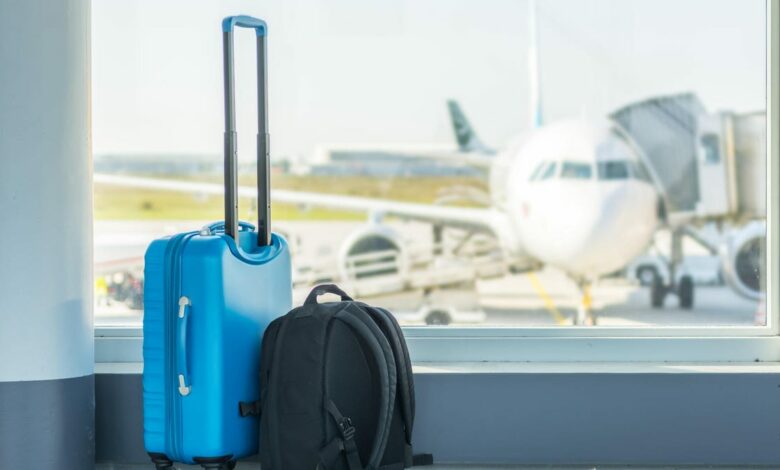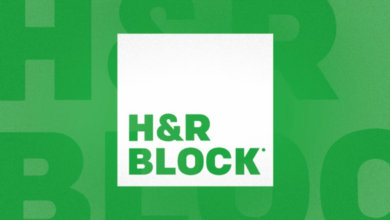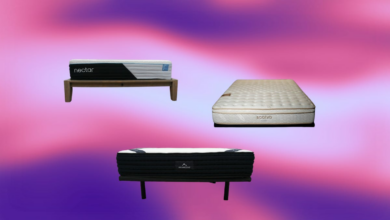How to avoid those annoying airline baggage fees

Travel isn’t getting easier — or cheaper. And now checked baggage fees are going up again. In February, American Airlines became the latest airline to increase in checked baggage fees This year, raising the price by $10 for checked bags at the airport. Now, the first checked bag on a U.S. domestic flight will cost you $35 if you pay online, and $40 if you wait until you get to the airport to pay. The second checked bag on a domestic flight will cost $45, whether purchased online or at the airport.
American’s fee hike comes four years after its last increase, in 2018. And American isn’t alone. JetBlue and Alaska Airlines have also recently raised baggage prices. Now that American has paved the way for a $40 checked bag, it’s likely that other U.S. airlines will follow suit. Baggage fees are their money-making power, so don’t expect the fee to go away anytime soon. You’ll have to factor it into your travel budget unless you can find an alternative.
The Basics of Baggage Fees
It is always cheaper to pay online for a first checked bag. And a second checked bag always costs more. Baggage fees can also vary depending on your ticket type and class of service. And the costs increase even more if you are traveling internationally.
Some travelers treat carry-ons like a religion — you know who you are — and will simply ignore these changes. It’s easy to see why. Not only are carry-ons generally free, but once you land, you don’t have to wait at baggage claim or risk the airline losing your bag. (Pro tip: The Federal Aviation Administration now says you can include Apple AirTags and similar trackers in your checked bag.)
Other travelers rely on a checked bag. It allows them to pack more in a larger container and certain toiletries that exceed their carry-on allowance. And it means they don’t have to lug a bag through security and fight for space in the overhead bin.
With airlines charging for everything from aisle and window seats to extra legroom, a new hike in baggage fees is making the cost of travel even higher. This is especially true if you’re traveling with more than one checked bag, or if you have multiple family members, each with their own checked bag.
Savvy travelers are finding ways to avoid checked baggage fees. Here are six tips to avoid—or at least reduce—unwanted baggage fees.
Apply for an airline credit card
If you’ve flown in the past few years, you’ve probably ignored flight attendants advertising airline credit cards. Listen up next time — or better yet, apply for an airline credit card before you fly. Getting an airline credit card is the easiest way to avoid baggage fees. Most of these cards charge an annual fee, but it’s worth it if you travel a few times a year. Airlines’ policies vary, but they usually offer at least one free checked bag (and some extend that benefit to additional travelers booked under your reservation). They also offer other perks, like preferred boarding groups and frequent flyer/loyalty points.
Aim for elite status in aviation
This option only makes sense if you’re actually a regular traveler. If so, elite status is the holy grail. Frequent flyers in the know stick with one airline when they fly, to accumulate miles, and they use the airline’s credit card to maximize the points earned. All of this usually counts toward the airline’s elite status. Most airlines base their status on a combination of miles flown and points earned through airline credit cards, hotels, car rentals, restaurants, shopping, and other promotions.
Elite status gives you a range of benefits, including preboarding, free seat selection, free upgrades and of course, free checked bags. You can even earn miles faster, so you can get a free flight sooner. Baseline Elite status usually gives you one free checked bag. Higher status levels usually give you one or even two extra checked bags.
Book in business or first class
The higher your class of service, the better the included perks, whether that’s free food and drinks or a baggage allowance. Most airlines offer at least one free checked bag to passengers flying business or first class. While the cost of the better seat may not match the cost of your checked bags, you do get more comfort and amenities. Plus, you earn more miles on a business or first class ticket, so the bonuses just keep adding up.
Offer your bag for gate control for free
This option works best on full flights. The gate agent on a flight is always under pressure to leave on time. If a flight has a full group of passengers, gate agents will announce that they are looking for volunteers to check in bags for free before boarding begins, to avoid the hassle of overhead bins.
If you think you will be volunteering at the gate, make sure you have all battery-operated electronics, medications, and keys with you when you pack your carry-on. That way, you can quickly retrieve these items when you need to check your bag.
Consider flying Southwest
This isn’t an option for many travelers and itineraries, but Southwest is still the only airline to offer two free checked bags with its fares. That alone keeps the airline in the conversation for some travelers.
Know the rules
To make sure you keep your carry-on luggage with you, check that it fits in the airline’s overhead bins and that it can stand upright in the overhead bins. These bins are designed to allow you to take more luggage on a plane.
And if you do decide to check a bag after all this, double-check your carrier’s rules. Make sure your checked bag meets the specified maximum dimensions and weight to avoid extra fees. Look for bags with protruding pockets, and be sure to account for wheels and handles when measuring your bag — just to be safe.




